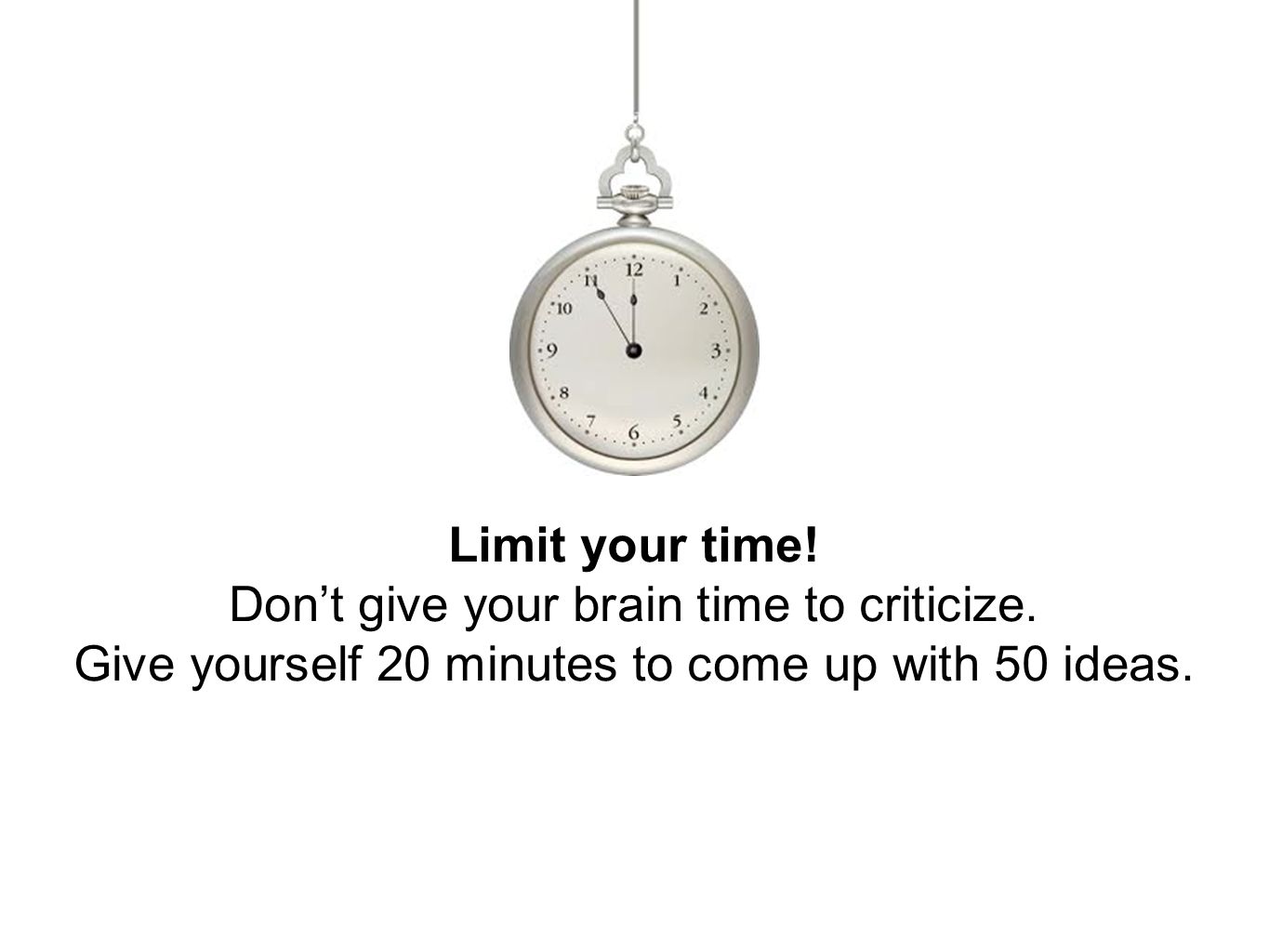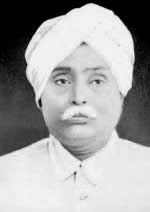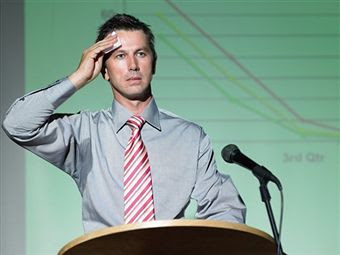The main cause of hesitation is uncertainty. Often we are not sure of the result of our decision or action. Fear of making a mistake is the root cause of hesitation. How can we overcome this fear of making a mistake?

Ask yourself “have I met anybody how does not make mistakes”. Is there any leader in the world ever who never made any mistakes? Everybody does. If that be so then why one should be afraid of making a mistake. It gives you enough reason not to hesitate. But, reason is not the only thing when we talk of hesitation and or fear of making a mistake. The associated problems like how others will feel or perceive about decision/action bothers our mind.
What happens if you don’t take a decision? What happens if you don’t take action where it is required? Consequences of inaction or indecision are far more severe than the fear of making a mistake.

The best thing is to think and act. When it something serious you can note down crystallize your thoughts and then act. But act you must. And that to must happen well in time. Delayed action often leads to further problems. Where ever you hesitate you must fix a time limit which could be from a few seconds or minutes or hours as the situation remains. Stick to the time limit. Don’t worry about the consequences of actions that you have taken after due consideration.

You must imbibe in yourself a desire for doing new things. Habit of doing new things also builds your self confidence. Self confidence in turn makes you a decisive person who does not hesitate. Hesitation is a serious development need which you must address.

Thanks for reading.
Enemies of Happiness – Attachment.
You like something, you are attached. You believe a creed you become attached etc. Likewise you become attached to your possessions, your house, your car, and things like that. However attachment does not lead you anywhere. It’s necessary that you identify the reason for attachment and then decide to pull yourself out.

Change is the law of nature. Everything that belongs to this earth must change. And you should accept these changes as a part of life. Therefore, wherever you get attached to, you are likely to be unhappy due to possible loss of the attached thing, person or place. Stop fearing the loss. Some risk is always there in life; no one can avoid all risks. I would go one step further to say that taking some risk is necessary for your growth.

In the circumstance it is best not to be attached to anything. You should be prepared for change as they say change is the only thing which is constant. Except that, everything else changes. And just because we have decided to be happy; we propose to defeat all the enemies of happiness, we must upgrade ourselves. We must not harbor attachment in our mind.
Start loving yourself. Have lot of respect for your person, for your capability and for your skills. This will lead to greater self esteem. This will also motivate to hone your strengths.
Learn to let go of an attachment to feelings. There is no doubt that emotions are powerful. It is difficult to control emotions. But constant efforts to empower your personality will definitely enable you to control the negative feelings.

Thanks for reading.
Enemies of Happiness- Procrastination
Procrastination is the bane of life. It is a major problem. The procrastinator losses perspective. He/she tends to do unimportant tasks because either they are easy or to his/her liking. In any case this is a bad habit which must be eradicated all together.

Normally one tends to postpone difficult and time consuming projects. In case the project is likely to take a long time you need to decide that you must make a beginning. Long ago I had listen to a training tape where the trainer said that in such cases use ‘Salami Technique.’ Further he described when you look at the Salami it is very unappetizing to look at. But if you cut it into smaller slices it becomes quite palatable. Similarly if we break a daunting task in small pieces we can handle the small parts of the problem and solve it using this piecemeal approach. The best suggestion is that you focus on starting the project rather than thinking about how it is going to be finished.

Another suggestion is that you decide that you will devote only 10 minutes on the tasks which you have been postponing. Spend these 10 minutes. You may note down the steps that you are likely to follow. At the end of 10 minutes you should write it down when you’re going to spend next 10 minutes on the same job. Deciding and spending just 10 minutes will not create any kind of pressure in your mind. And that is the best way to handle the job which you have been postponing. After completing every bit of it you can pat your back with any such thing that you love to do. May be listening to your favorite music, watching a TV show, or any such thing. This will reinforce your good habit of taking on the difficult, challenging projects and delivering results with confidence.

Thanks for reading.
Enemies of Happiness- Indecision
1. Spend a few days noticing when the malady i.e. indecision bothers you? What types of things trouble you? Are they small things or big things? How much time do you devote to make simple decisions?

2. Pick one thing to focus on, something that you’re constantly struggle with (it could be what time to get up the morning, what to eat that day, what outfit to wear). Make sure it’s a small thing to start with. Bigger problems can be dealt when you are more experienced.

3. When you go to a restaurant do you take too much time to decide what to order?
4. When your boss asks you to work on a holiday, how much time you take to respond? Do you say instantaneously and then repent about it?

5. While driving in heavy traffic, do you feel that you that you have taken a wrong lane which moves very slowly?
6. Next time you find yourself struggling to choose on your chosen subject, remind yourself mentally “I am a decisive person and I will not waste my time and energy with this.”
7. For important tasks, you may even write down pros and cons. Then it’s easier to decide. But never feel bad about wrong decisions. Some decisions go wrong for everyone. The more you start taking decisions, you will find that incidence of wrong decisions will reduce.

8. Now – simply pick one option. Make a decision quickly and commit to it. It doesn’t matter if it’s the right decision or not – just do it.
9. Let it go. Refrain from laboring about whether you made the right choice or not and move on. Do something immediately that really does matter to you – and if possible something that will make a positive difference to your life or to the lives of others.
Thanks for reading.
“Sher-E-Punjab”

Today is the death anniversary of a Lion of Punjab- Lala Lajpat Rai. He was born on 28th January 1865. He was an author but more importantly a politician who fought for – freedom. He was a part of three important freedom fighters known as ‘Lal Bal Pal’. Lal – Lala Lajpat Rai was from Punjab. Bal- Bal Gangadhar Tilak was from Maharashtra. Pal- Pipin Chandrapal was from Bengal. These three great freedom fighters coming from three corners of our country formed a formidable force.

His death anniversary (17th November) is one of several days celebrated in India has Martyr’s Day. He was elected President of the Congress Party in the Calcutta special session of 1920. He also founded ‘Servants of the People Society’ – a non profit welfare organization with branches in many parts of the country. During the special session of the Congress party under his Presidentship the Non-Corporation movement was launched. Lal who is also known as Punjab Kesari was President from 1921 to 1923.

In the year 1928 during the great unrest in the country, the British Government set up a commission. This was headed by Sir John Simon. The Commission did not have any Indian as its member. Lala Lajpat Rai boycotted the commission. When the Commission visited Lahore on 30th October 1928, Punjab Kesari (Another name for Sher-e- Punjab) led a silent march as a protest. The Police were ordered a fierce lathi charge against the protesters. The then superintendent of Police, Jams A. Scot personally assaulted Lala. He was seriously injured. Yet he said “I declare that blows stuck at me today will be the last nails in the coffin of British rule in India”.
Let us all remember and pay respect to Sher- e- Punjab, Lala Lajpat Rai on this day.
Thanks for reading.
Enemies of Happiness 6
Friends, I hope you must have reflected on the two Enemies of Happiness that originate and grow in the mind. After Anger and Fear, I proposed to talk about Jealousy in this post.
Jealousy: Jealousy is quite common in our competitive world. It’s important to recognize the reason for the jealousy. You must also identify how much time and attention it takes you to contemplate on this daemon. Jealousy can be really debilitating. It doesn’t allow you to reach your goals. Once you admit to yourself that this ugly dragon keeps creating problems in your mind, you must seek corrective measures.

Some suggestions:
- Reflect on your achievements. Count your blessings. And then try to achieve more. When you are busy in making and implementing your plan to achieve your goals you will not have time to waste with this malady.

- You must accept yourself as you are. Assess your strengths. Try to leverage these strengths for your achievements. Meanwhile you must also assess your weaknesses. These can be overcome with conscious efforts. Consistent efforts with interest will definitely yield excellent results. You must also try to develop good verbal communications skills. This will enable you to improve your relations with others. Besides, you must choose your friends and social contacts with discretion. Remember that successful people around you will make you more successful. In this manner your jealousy will be tamed and will not interfere with your moments of happiness.

I would like to invite your comments.
Thanks for reading.
Enemies of Happiness 5
In my last post I had talked about Anger. The next most dangerous enemy of happiness is Fear. It is an emotion induced by a threat among the living beings. Among humans fear may occur in response to perceived risk to health or life, security, power, status or risk of losing any valuable. We keep on harboring fear by thinking that it is something natural to human being. Yes it is. But it can be conquered. How?

1. First of all accept it. Accept that you are afraid of certain things until we maintain our brave face we cannot device remedial measures. It’s preferable to write it down what you are afraid of and if possible defines the reasons there off.

2. Decide to face your fear. Ask yourself whether fear helps you to come out victorious in a particular situation or fear has any kind of advantage. Answer is always ‘No’. Some situations you can’t even escape.

3. Don’t allow anyone to frighten you for anything. We must also understand that caution is not fear. To be cautious is wise while to be fearful is foolish.

4. Don’t be afraid of taking calculated risks. Not taking any risk is the biggest risk in life.

5. I read somewhere that fear of speaking in public is next only to fear of death. Therefore find opportunities and face the audience as frequently as possible.

6. If you allow fear to overpower, you can never be assertive. People will always take you for granted. You will always be in a disadvantageous position.
7. Living in fear is no good. Therefore be bold. Face your challenges courageously explain your opinions comfortably. Your tone and expression should be such that it doesn’t hurt anybody’s feelings.

Your comments, perceptions and experiences will help in our discussion. Look forward.
Thanks for reading.
Enemies of Happiness 4
Out of the 8 personality problems or 8 Enemies of Happiness in the personality, Anger is most damaging. Anger is an emotional response related to one’s psychological interpretation of having been threatened. At times the response could be volatile. Anger can have many physical and mental consequences. The ability to take right decision is impaired. Unabated continuous anger can cause he decks, migraines, chest pains etc. over a long period anger results in high blood pressure, depression and heart related diseases.

So we all agree that anger must be avoided to remain fit n fine. But how do we do that. I am listening below some suggestions which I do not claim can totally eradicate your anger, but they are helpful. If practiced with a positive attitude and consistently they can defiantly mitigate anger and control minds of very short tempered people. The suggestions are as follows.
1. The first step is to control your speech. Anger is an emotion which will be difficult to handle but speech is something which is comparatively easier to control. Once you practice control of your speech you will also be practicing how to maintain a positive body language also. With the speech and body language under control you will be able to handle even difficult people efficiently. This will result in reduction of the occasions for you to lose your temper.

2. Smile is a very simple antidote to anger. So therefore keep a smiling face.

3. Meditation is also helpful.

4. Yogic exercises everyday will cool down your temperament.

5. When you are angry go to a quiet place- a sea shore or a garden and have a quiet walk.

6. Start listening to soft music that you like.

Finally ask yourself: why do I get angry? Is it helping in any way? Am I achieving any objective whatever it may be?
You will find the answer to all the above questions is simple ‘No’. Therefore you must decide ‘Not to get angry at all’. Keep on repeating these questions and decision every day until you find that your temper is cooling down.
Thanks for reading.emotional response
Enemies of Happiness 3

In my last posting I had talked about the enemies of happiness within i.e. oneself. But there are many enemies waiting to spoil your happiness outside. These could be found at your workplace or even in the social group that you belong to. They are also there in your neighborhood. We should also not undermine the enemies present in the extended families or among so called friends.

In this post I like to talk about the enemies at the workplace. Most of our conscious time, we spend at the workplace. If we are happy at work we are likely to carry the same good feelings when we reach home. However if we find that there are happiness spoilers at workplace, it’s necessary to identify them. It is also necessary to deal with them for whatever it takes. I wouldn’t say that any given time you can totally be free from such enemies. But if you identify and take remedial measures, you can definitely mitigate their bad influence.

At workplace some people often oppose you due to difference in personality traits. There could also be strong difference of opinions on common matters. But more important than that is when some enemies try to pull you down. The reason could be their insecurity or simple jealousy. Not knowing their presence around you will never help you. Some sweet talkers can also be hidden enemies of your happiness.
Thanks for reading.
Enemies of Happiness 2
Yesterday I had talked about 8 enemies of happiness which resides in human’s body or soul. I had detailed 4 out of these that is anger, fear, jealousy and indecision. If you have contemplated as suggested, am confident that you would have found sufficient relevance of this discussion. Today I shall talk about attachment, hesitation, procrastination and greed. These are also happiness spoilers. Greed if goes unrefined, can cause disaster.
Attachment: Bhagwad Gita advises that any human should not be attached to anything. By attachment I mean you should never have such proximity that separation to that particular object may cause distress. Change is the law of Nature. Everything changes. These changes are bound to bring some objects (including people) close to you and some other away from you. In both situations you have to maintain your poise realizing that this is how life is. It was like this. It is so now. And it will remain the same in all times to come. So for our own happiness we can start practicing non attachment.

Hesitation: Hesitation for anything must be avoided. Your expression is important. If you hesitate to express or to take any action, the opportunity lost will never come back.

Procrastination: It is malady which inflicts some of us. Postponing tasks or decisions do not allow one to grow. Self esteem is lost and guilt inside the mind grows. Therefore it’s best to eradicate the habit of procrastination.

Greed: Greed grows like cancerous cells. Ambition is not greed so therefore both these terms must be understood in their proper perspective. Without ambition you tend not to set your goals and follow them. But greed of any kind mostly takes human to a disasters end. In life, we have example of Hitler. In literature, we have example of Macbeth. The character of Macbeth in Shakespearean play by the same name is nothing but an embodiment of Greed. So banish Greed, altogether!

In my next posting I shall talk about ‘Enemies of Happiness’ outside.
Thanks for reading.